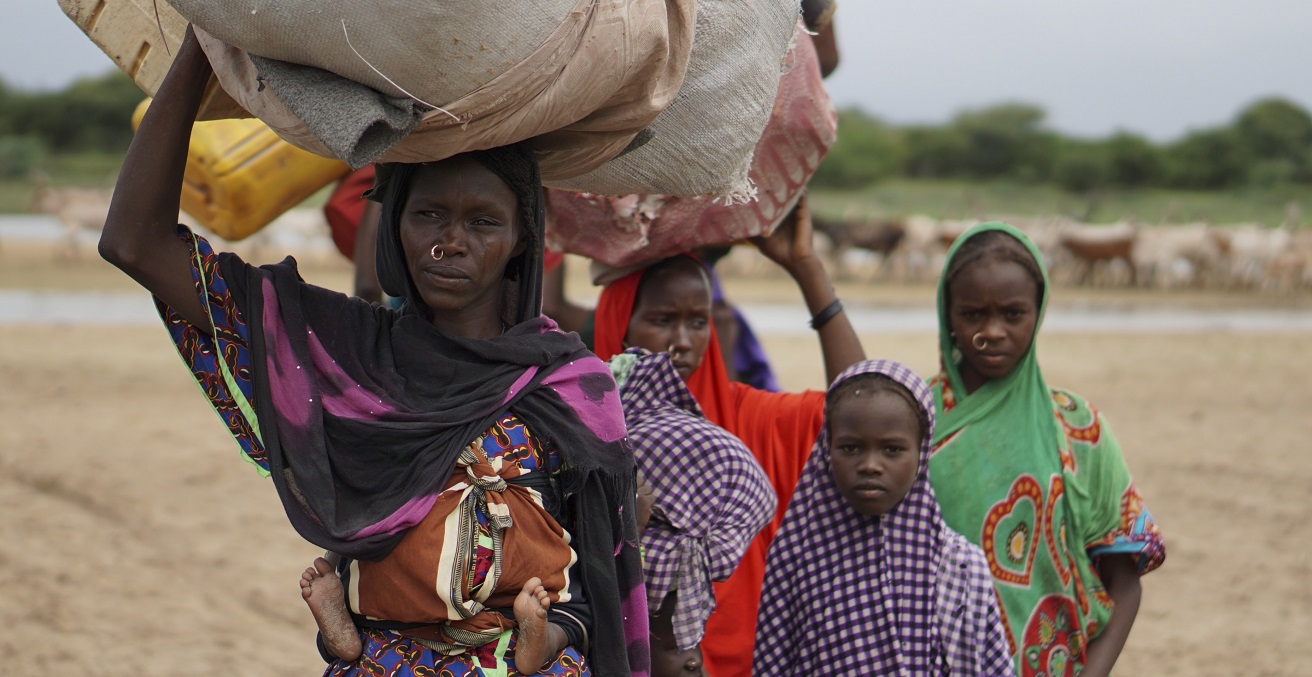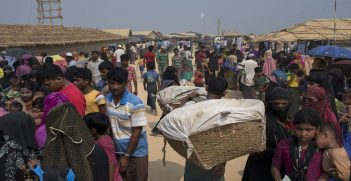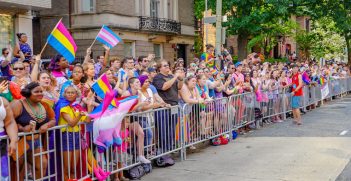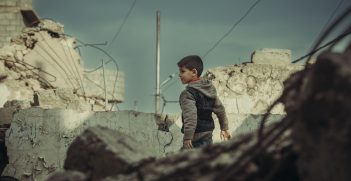Blanket of Silence: Dealing with Sexual Violence in Conflict

In Nigeria, an ongoing 13-year armed conflict in the Northeast and persistent incidents of violence in some parts of the Northwest and South have resulted in a range of humanitarian consequences. For many, especially women and girls, living in the crossfire may best be described as a smothering experience.
This is certainly the case for Ene (not her real name), who watched her husband killed in front of her after a covert trip to harvest their farm produce turned into an unwitting walk into an ambush. Still reeling from the shock of seeing her husband killed, Ene was raped and afterwards, managed to walk to the nearest camp for people displaced by violence to seek help.
Ene and her husband had already been displaced from their home in Benue State, following attacks from armed groups months before. They had sought shelter in a camp consisting predominantly of farmers displaced by the persistent communal clashes prevalent in some states of Nigeria’s North Central. Their attempt to harvest produce from their farm came after a season of uneasy quiet that lured them out of the camp to seek food.
There are many women with experiences like Ene. During times of conflict and violence, women and children tend to be disproportionately affected by sexual violence. According to data from the Sexual Assault Referral Centre, more than 5,623 incidents of sexual and gender-based violence were recorded from January 2018 to July 2022 in Nigeria’s three states most affected by the armed conflict: Adamawa, Borno, and Yobe. However, these numbers hardly represent the reality across the country. Many cases remain underreported due to the fear of being stigmatised, rejected by family and community, or even fear of reprisals. Communities also lack information about existing services for survivors and the consequences of sexual violence, and access to such services is severely limited in many places, due to insecurity.
Often, these women experience the added trauma of seeing family members killed or forcibly recruited by armed opposition groups. They may grapple with the reality that some of their family members are missing and have to take on the burden of being present and providing for the rest of their families, while dealing with displacement and an inability to meet basic survival needs.
“Unfortunately, we come across a lot of cases of sexual violence in our operations in Nigeria to protect and assist victims of armed conflict, and the needs of survivors go largely unmet – both due to the widespread lack quality of services, as well as the stigmatization attached to sexual violence, which acts as a barrier for service-seeking,” says Maria Oleka, Sexual Violence Operations Manager with the International Committee of the Red Cross (ICRC) in Nigeria. “Survivors of sexual violence often face severe and long-lasting consequences – the impact on their mental health, for example, can be grave.”
The mental health impact of both loss and violence in times of conflict and violence are varied, manifesting themselves in different ways. “These women are expected to show up for their families after experiencing several layers of trauma,” says Rita Akoji Umaru, who works in the ICRC health team. “Many of them do not have the luxury of time to process their experiences and emotions and often find it difficult to access help.”
The ICRC adopts a multi-disciplinary approach in addressing the issue of sexual violence; survivors of sexual violence and individuals at risk have a wide range of humanitarian needs. The ICRC works to respond to the immediate and long-term needs of survivors, but also to reduce the risk of sexual violence to individuals and communities where it occurs, as well as to prevent it from happening in the first place. This includes providing access to mental health and psychosocial support, medical care, and livelihood support for survivors of sexual violence. As a result, women and children who are in vulnerable situations are reached to ensure that they are less at risk of experiencing sexual violence. Whether it is by way of receiving cash grants or being taught a skill to earn a living, survivors are supported to make decisions from a place of power, and to regain dignity. Raising awareness about sexual violence among Armed Forces of Nigeria and police to sensitise them on their role in dealing with survivors and perpetrators is also an important part of this work.
The ICRC also works by building the capacity of local actors and community members towards providing mental health and psychosocial support to enable referrals and to ensure sustainability. This includes health workers, affected people, and volunteers of the Nigerian Red Cross Society. For instance, in Borno and Adamawa states, the ICRC reached more than 487,000 people with mental and psychosocial support, between 2019 and 2022Nine out of ten people supported by the ICRC reported an improvement in mental health symptoms such as sleeplessness, loss of appetite, exaggerated startle response, suicidal thoughts, and overthinking.
Despite the stretches of successes being recorded, there is still a lot of work that needs to be done as the scale of needs greatly outweighs the resources needed to meet those needs. It is not a job the ICRC seeks to do alone as it continues to strengthen its holistic approach, not just in its programs but also with affected communities.
Eleojo Esther Akpa is an editor and analyst for the International Committee of the Red Cross, Nigeria.
This article is part of the “Forgotten Conflicts” series by the International Committee of the Red Cross in partnership with the AIIA, highlighting the serious and often overlooked humanitarian consequences of armed conflicts and other situations of violence. It is published under a Creative Commons License and may be republished with attribution.





